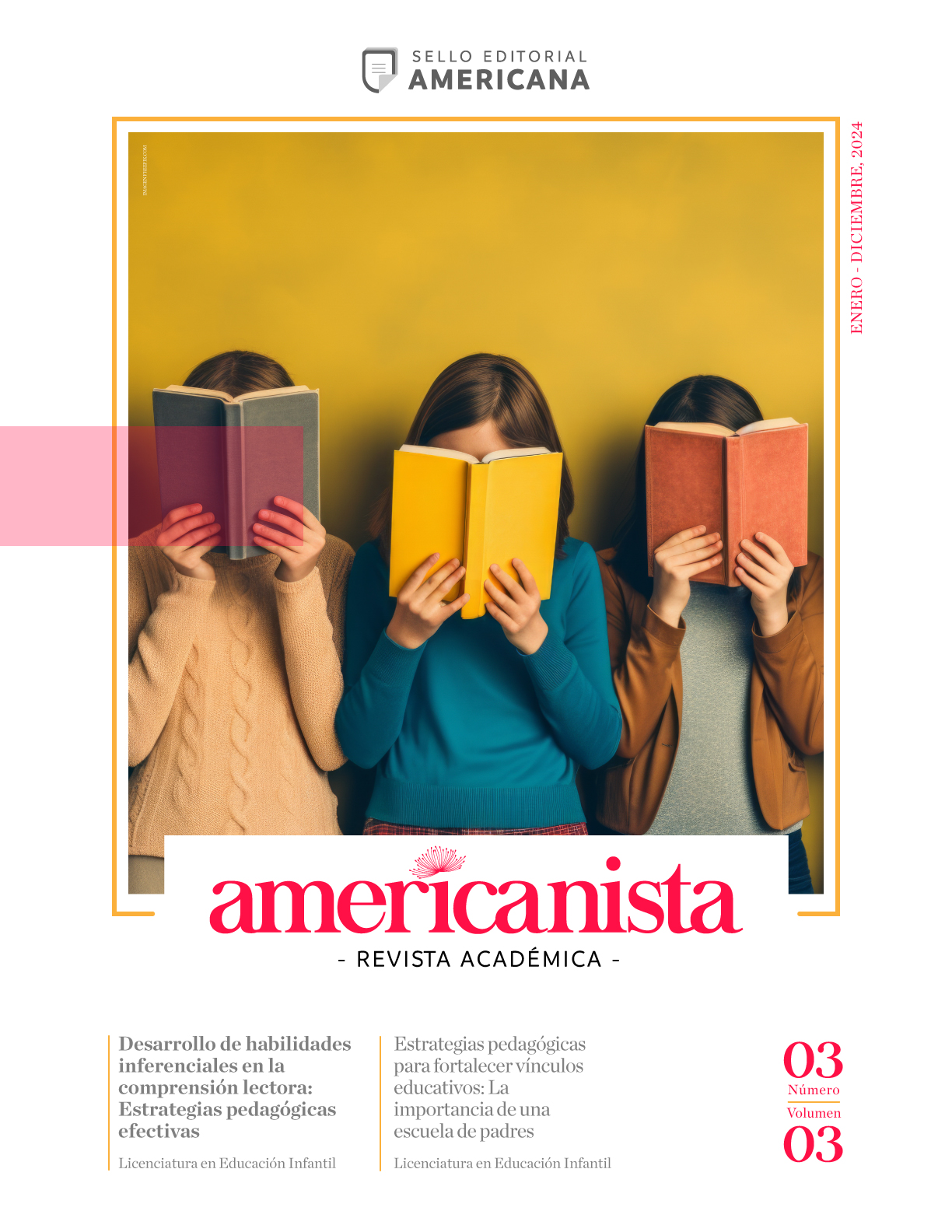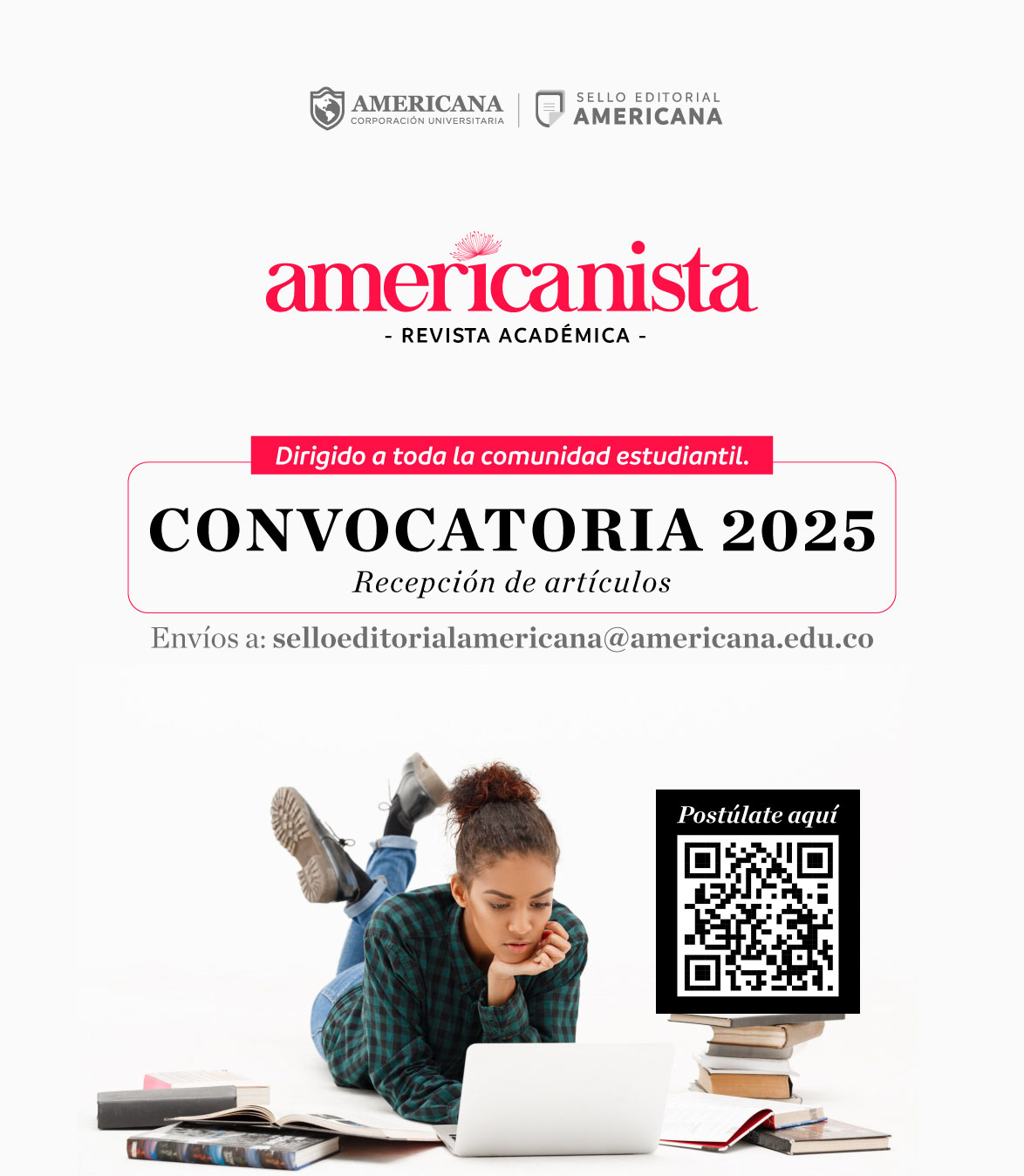Pedagogical strategies to strengthen educational links: The importance of a school for parents
Keywords:
Teachings, Parents, School, Children, Learning, TeachersAbstract
This article presents a parenting school project designed to strengthen parenting skills and promote
family well-being. This project is based on sound pedagogical principles and is supported by research
on the importance of parental participation in the education and development of their children,
detailing the objectives, implementation strategies and possible benefits of this approach. In the
constant search to optimize the academic and emotional development of our children, the notion
of a "Parent School" emerges as a guiding light. This document explores the essence and benefits
of cultivating a collaborative educational space between parents and educators. We address the
importance of establishing effective communication between school and home, demystifying the idea
that education is the exclusive responsibility of academic institutions. Through pedagogical strategies
and approaches to strengthen parental involvement, it provides a detailed look at the practical tools
that can transform educational dynamics.
References
Arévalo, A. I., López Galeano, E. U., & González Casco, M. A. (2023). Transición de la planificación y gestión por resultados a un enfoque por procesos en una universidad. Estrategia y Gestión Universitaria, 11 (2), 175-195. https://doi.org/10.5281/zenodo.10084882
Cardeño Portela, N., Cardeño Portela, E. J. y Bonilla Blanchar, E. (2023). TIC y transformación académica en las universidades. Región Científica, 2(2), 202370. https://doi.org/10.58763/rc202370
Carrera, B. & Mazzarella, C. (2001). Vygotsky: Enfoque sociocultural. Educere, 5(13), 41-44. https://www.redalyc.org/pdf/356/35601309.pdf
Decreto 1286 de 2005. (2005, 27 de abril). Ministerio de Educación Nacional. https://www.mineducacion.gov.co/portal/normativa/Decretos/85861:Decreto-1286-de-Abril-27-de-2005
Gabarró, D. (2011). ¿Fracaso escolar? La solución inesperada del género y la coeducación. Editorial Boira.
Hoover-Dempsey, K. V., Kathleen V., Sandler, H. M. & Howard M. (2005). Final performance report for OERI Grant# R305T010673: The social context of parental involvement: A path to enhanced achievement.
http://hdl.handle.net/1803/7595
Mendoza-Santana, M. I. & Cárdenas-Sacoto, J. H. (2022). Importancia de la participación familiar en la educación de los estudiantes del nivel inicial. Revista Estudios del Desarrollo Social: Cuba y América Latina, 10(2). http://scielo.sld.cu/scielo.php?pid=S2308-01322022000200024&script=sci_arttext&tlng=en
Molano Vargas, A. C., Bejarano Novoa, D. C. & Suárez Pérez, D. A. (2022). Orientaciones técnicas: Alianza Familia - Escuela por el desarrollo integral de niñas, niños y adolescentes. Ministerio de Educación – Colombia aprende. https://www.colombiaaprende.edu.co/sites/default/files/files_public/2022-02/
Orientaciones-tecnicas-alianza-familia-escuela.pdf
Razeto, A. (2016). El involucramiento de las familias en la educación de los niños: Cuatro reflexiones para fortalecer la relación entre familias y escuelas. Páginas de Educación, 9(2), 184-201. http://www.scielo.edu.uy/scielo.php?script=sci_arttext&pid=S1688-74682016000200007
Ripoll Rivaldo, M. (2023). El emprendimiento social universitario como estrategia de desarrollo en personas, comunidades y territorios. Región Científica, 2(2), 202379. https://doi.org/10.58763/rc202379
Rodríguez Torres, E., Pérez Gamboa, A. J., & Camejo Pérez, Y. (2023). La formación del liderazgo distribuido en la intervención a favor del patrimonio cultural. Transformación, 19(2), 317-336. http://scielo.sld.cu/scielo.php?script=sci_arttext&pid=S2077-29552023000200317&lng=es&tlng=en
Downloads
Published
Issue
Section
License
Copyright (c) 2024 Americanista revista Académica

This work is licensed under a Creative Commons Attribution-NonCommercial-ShareAlike 4.0 International License.




